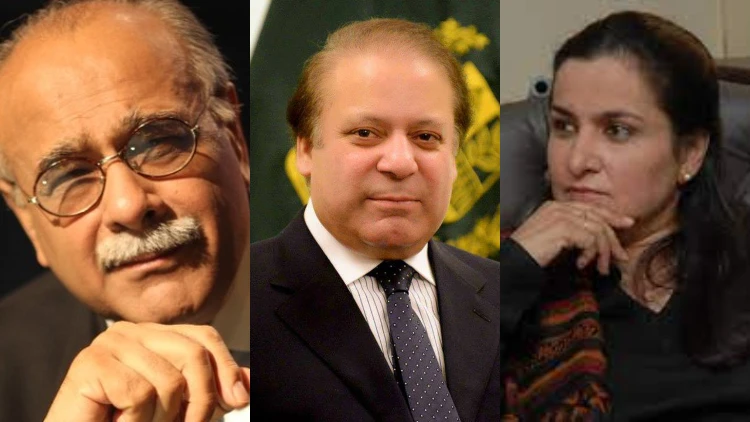New Delhi/Shaista Fatima
Renowned Pakistani journalist Najam Sethi has said that “the Kargil war was a political disaster that brought a paradigm shift in International politics…”
As India commemorate the sacrifices of Indian soldiers who lost their lives in the battle of Kargil, on its 22nd anniversary, let’s check on what some leading Pakistanis had to say on the war that was initiated by Pakistani Army chief General Pervez Musharraf who sent his troops to occupy the Kargil heights during the winter.
Mian Nawaz Sharif:
“A few Generals were behind the 1999 Kargil war and not the army. Pakistan did not achieve anything from the Kargil war. They threw not only the Army but the country and community in the war and in such a place that nothing could be achieved from it."
Najam Sethi, Editor, Friday Times
He says that at first India had captured Siachen (glacier) from Pakistan in the year 1982 when General Musharaf was serving as a Major in the Pakistan Army. This later escalated into a war of ego when in the year 1999, Musharraf became Army Chief.
He along with Commander Mahmood, Aziz and Brig. Javed Hasan commonly known as the Gang of Four carried forth a secret mission of infiltrating the Pakistan Army in and across LOC. The air of confidence was their control over nuclear weapons and none had by then anticipated the dire consequences that followed.
"The Kargil war was a political disaster that brought a paradigm shift in International politics…"
“Atal Bihari Vajpayee and Nawaz Sharif were on talking terms and the bus diplomacy was under talks but the big four had by then already infiltrated Pakistani soldiers disguised as Mujahideen and they had occupied around 140 posts that were least guarded by the Indian soldiers."
"Nawaz Sharif was helpless and rushed to America for assistance. It was then that Pakistan realised they had to retreat, leave the posts and stop espionage. The then President Bill Clinton sided with India and after the war receded, America became pro-India. Pakistan by then was marginalised which later on faced a military coup. Nawaz Sharif was sacked and Parvez Musharraf took over as the Prime Minister of Pakistan."
Nasim Zehra, senior Journalist and author of book From Kargil to the Coup
“It was a high end secretive operation carried on by four elite Generals of the Pakistani Army.. It was by the mid of May that in a meeting presided over by Nawaz Sharif, Army Generals and others, the reality behind Mujahideen was revealed."
“The International media had by then started taking an interest in the whole operation and Indian Army was now aware of the whole situation but Pakistan had publicly denied the possibilities of their involvement and were siding with the theory of Mujahideen.
During my research I had a chance to speak to the Indian Defense Minister George Fernandes and he instantly pointed out that Pakistan did Kargil to which I said the Indians carried out Siachen, to which he further retorted it totally depends who can get away with what…
The Pakistan Generals hadn’t anticipated Airforce and Bofors involvement on the Indian front and this deteriorated their stance further. The Pakistan Army was losing out vital resources like food, water and weaponry. It was a defeat due to lack of strategy and farsightedness."

